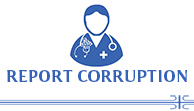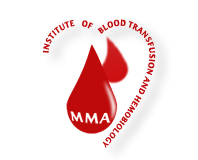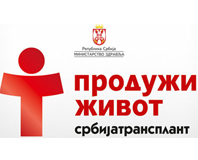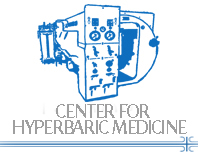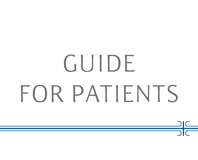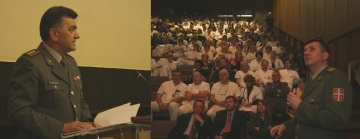
Contribution to ‘’Serbia Transplant’’: Coordination of Solid Organ Transplantation
22. 03. 2011
Belgrade, March 22, 2011. – The Educational Course on Coordination of Solid Organ Transplantation was held today at the Military Medical Academy. The aim of that Curse was building of awareness of the European organizational models for transplantation coordination, presentation of previous accomplishments and planned future transplantation –related activities.
Through 16 theoretical lectures delivered by the experts from the Military Medical Academy and all Clinical Centers in Serbia, and Prof. Dr. Günter Kirste from Frankfurt as well, the attendees to the Course were introduced into the organizational models of solid organs transplant coordination and all medical aspects of that problem.
Present to that multidisciplinary Course were over 400 experts from Serbia and the Republic of Srpska, who are specialists in various fields of expertise ranging from surgery, anesthesiology, internal medicine, immunology to microbiology, and medical technicians involved in those transplant procedures, then physicians from a large number of regional hospitals who are responsible for the operation of their intensive and semi-intensive care units. The purpose was to establish a communication model, which should yield an increase of cadaver transplant activity in our country.
Opening the Course officially, the MMA’s head, Col. Prof. Dr. Marjan Novaković said that the field of organ transplantation is a multidisciplinary field, and an issue viewed as medical, ethical, sociological and legal concern. ‘Recent years have seen considerable progress made in this field in our country. As far as we are concerned, we have given an active high quality contribution to it, and jointly with the media representatives and our colleagues from other national health care facilities and newly formed Biomedicine Department of the Ministry of Health, we’ve tried to be actively involved though our deeds and example in designing the Serbia Transplant Program and contribute to the national action ‘’Prolong the Life’’. We can succeed on the Transplant program development and affirmation path only if we join our efforts and work together closely utilizing the experiences of other countries as well, and the indication that we are heading in the right direction is today’s event and your presence’’. Col. Prof. Dr. Marjan Novaković said. The MMA’s head promised that the MMA will fully support the further development of the Transplant Program in our country.
Colonel Prof. Dr. Đoko Maksić, a MMA’s coordinator of the Organ Transplant Program retrospectively looked at the previous results and reminded the present of the perspectives on the development of the Transplant Program in our institution. ‘’During the last year, our transplant surgeons performed 11 liver transplant surgeries (10 cadaver and 1 living-donor) and 21 kidney transplants (7 cadaver and 14 living-donor). The total number of transplants performed so far at the Military Medical Academy includes 21 liver and over 300 kidney transplants, what coupled with the fact that our experts have trained our colleagues from the Niš Clinical Center within the Kidney Transplant Program framework, and have already initiated the training program for the transplant team in the Banja Luka Clinical Center constitute a significant reference for the MMA to be nominated for the national referral center for solid organ transplant’’ Col. Maksić said.
Through 16 theoretical lectures delivered by the experts from the Military Medical Academy and all Clinical Centers in Serbia, and Prof. Dr. Günter Kirste from Frankfurt as well, the attendees to the Course were introduced into the organizational models of solid organs transplant coordination and all medical aspects of that problem.
Present to that multidisciplinary Course were over 400 experts from Serbia and the Republic of Srpska, who are specialists in various fields of expertise ranging from surgery, anesthesiology, internal medicine, immunology to microbiology, and medical technicians involved in those transplant procedures, then physicians from a large number of regional hospitals who are responsible for the operation of their intensive and semi-intensive care units. The purpose was to establish a communication model, which should yield an increase of cadaver transplant activity in our country.
Opening the Course officially, the MMA’s head, Col. Prof. Dr. Marjan Novaković said that the field of organ transplantation is a multidisciplinary field, and an issue viewed as medical, ethical, sociological and legal concern. ‘Recent years have seen considerable progress made in this field in our country. As far as we are concerned, we have given an active high quality contribution to it, and jointly with the media representatives and our colleagues from other national health care facilities and newly formed Biomedicine Department of the Ministry of Health, we’ve tried to be actively involved though our deeds and example in designing the Serbia Transplant Program and contribute to the national action ‘’Prolong the Life’’. We can succeed on the Transplant program development and affirmation path only if we join our efforts and work together closely utilizing the experiences of other countries as well, and the indication that we are heading in the right direction is today’s event and your presence’’. Col. Prof. Dr. Marjan Novaković said. The MMA’s head promised that the MMA will fully support the further development of the Transplant Program in our country.
Colonel Prof. Dr. Đoko Maksić, a MMA’s coordinator of the Organ Transplant Program retrospectively looked at the previous results and reminded the present of the perspectives on the development of the Transplant Program in our institution. ‘’During the last year, our transplant surgeons performed 11 liver transplant surgeries (10 cadaver and 1 living-donor) and 21 kidney transplants (7 cadaver and 14 living-donor). The total number of transplants performed so far at the Military Medical Academy includes 21 liver and over 300 kidney transplants, what coupled with the fact that our experts have trained our colleagues from the Niš Clinical Center within the Kidney Transplant Program framework, and have already initiated the training program for the transplant team in the Banja Luka Clinical Center constitute a significant reference for the MMA to be nominated for the national referral center for solid organ transplant’’ Col. Maksić said.
The second part of meeting was devoted to the presentation of the most important findings and experiences in assessing the compatibility of a potential cadaver donor to the recipient – experiences and results achieved by the Serbian Clinical Center, the development strategy for the kidney and other solid organ transplant programs in Serbia until 2020, patient waiting lists, determination and clinical assessment of brain-dead patients as potential organ and tissue donors, clinical and instrumental diagnosis of brain death, maintenance of the vitality of organs of the brain-dead patients identified as potential donors, preparation of liver transplant patients and monitoring of patients listed for transplantation, assessment, selection and preparation of kidney transplant recipients, production of perfusion solutions, and preservation of solid organs for transplantation, multiorgan explantation, organ perfusion and preservation, distribution and allocation of organs for transplantation, pathohystological changes in transplanted kidneys, pathohystological evaluation of liver and kidney tissue in donors, as well as viral diseases transmitted through solid organ transplantations. Lectures were delivered by Mirjana Laušević from the Clinical Center of Serbia, Prof. Dr. Vidojko Đorđević from Niš Clinical Center, Dr Tatjana Dukić from the Serbian Blood Transfusion Institute, Asst. Prof. Dr. Dejan Petrović from Kragujevac Clinical Center, Dragana Jović-Divjak, MS, from Novi Sad Clinical Center, and Prof. Dr. Gordana Basta-Jovanović and Dr Ivana Tufekdžić from Belgrade Medical School. Lecturers from the Military Medical Academy were Colonels Dr. Ivo Udovičić and Prof. Dr. Ranko Raičević, Dr Milić Veljović, AF civilian employees, Asst. Prof. Dr. Jasna Jović, Prof. Dr. Mirjana Antunović and Prof. Dr. Darko Mirković, as well as Colonels Prof. Dr. Đoko Maksić and Prof. Dr. Darko Nožić.

